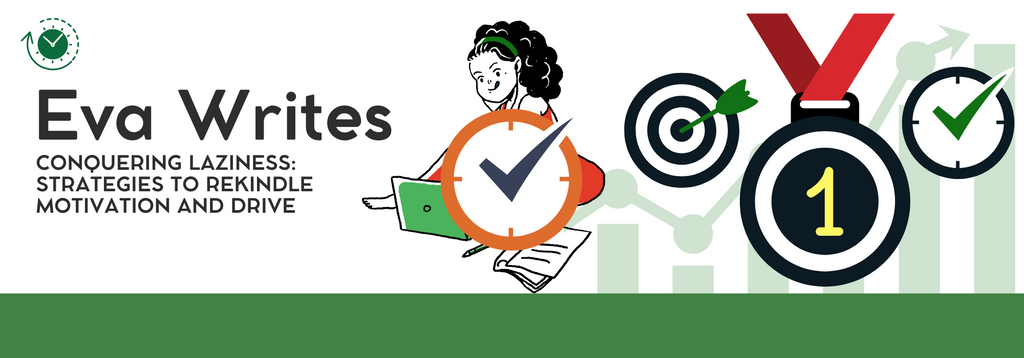Conquering Laziness: Strategies to Rekindle Motivation and Drive

Laziness is often misunderstood as a character flaw, but in reality, it’s a complex psychological response to various internal and external factors. Everyone experiences laziness from time to time, and it’s nothing to be ashamed of. By understanding its root causes and applying the right strategies, you can overcome inertia and unlock your full potential.
What Causes Laziness?
Laziness typically stems from underlying issues, including:
- Overwhelm: When faced with too many tasks or unclear priorities, the brain defaults to avoidance.
- Fatigue: Physical or mental exhaustion reduces your ability to focus and take action.
- Fear of Failure: Perfectionism or fear of not meeting expectations can cause procrastination disguised as laziness.
- Lack of Purpose: Without a sense of meaning or direction, it’s easy to feel unmotivated.
- Poor Habits: Disorganized routines and distractions can foster inactivity over time.
The Difference Between Laziness and Rest
Laziness and rest often get conflated, but they serve very different purposes. Rest is a necessary recharge that supports your well-being, while laziness involves avoiding effort when action is needed. The key is to recognize when your body and mind genuinely need a break versus when you’re avoiding tasks out of fear or overwhelm.
Strategies to Overcome Laziness
1. Start Small and Build Momentum
- Begin with tiny, manageable tasks that require minimal effort. Small wins generate momentum, making larger tasks feel less daunting.
- Example: Instead of cleaning your entire house, start by tidying one corner or making your bed.
2. Use the Two-Minute Rule
-
If a task takes less than two minutes, do it immediately. Tackling quick tasks helps you feel productive and reduces mental clutter.
3. Set Clear and Specific Goals
- Vague objectives often lead to inaction. Break down large goals into smaller, actionable steps with deadlines.
- Example: Instead of “Get in shape,” set a goal like “Walk for 15 minutes every day.”
4. Eliminate Distractions
-
Identify and minimize distractions in your environment.
-
Turn off unnecessary notifications. 🔕
-
Designate specific spaces for work or relaxation to mentally separate tasks.
-
5. Prioritize Tasks with the Eisenhower Matrix
Categorize your tasks into:
-
Urgent and important: Do it now.
-
Important but not urgent: Plan for it.
-
Urgent but not important: Delegate it.
-
Not urgent or important: Eliminate it.
6. Reframe Your Mindset
-
Shift from “I have to do this” to “I get to do this.” Viewing tasks as opportunities rather than obligations boosts motivation.
7. Create Accountability
- Share your goals with someone who can keep you accountable or use habit-tracking tools to monitor progress.
- Example: Tell a friend about your plan to read one book a month and check in weekly.
8. Reward Yourself
- Set up small rewards for completing tasks to create positive reinforcement.
- Example: After finishing a work assignment, treat yourself to a favorite snack or hobby. 🍬
9. Visualize the Outcomes
-
Picture how accomplishing your tasks will make you feel and the benefits you’ll reap. Visualization helps bridge the gap between inertia and action.
10. Adopt Healthy Lifestyle Habits
Laziness often correlates with poor physical or mental health. Boost your energy levels with:
- Regular exercise 🏃
- Balanced nutrition
- Adequate sleep (7-8 hours)
- Stress management techniques like meditation or journaling
Overcoming Laziness Through Routine
Consistency is the antidote to laziness. Create routines that incorporate essential tasks into your daily life. For instance:
- Morning Routines: Start your day with activities that set a productive tone, such as making your bed, stretching, or journaling.
- Evening Routines: Plan for the next day by setting out your clothes, prepping meals, or organizing your workspace.
Conclusion
Laziness is not a permanent trait but a signal that something in your environment, mindset, or habits needs adjusting. By identifying the root causes and implementing strategies like starting small, creating routines, and rewarding progress, you can break free from the cycle of inertia. Overcoming laziness is not about willpower alone but about setting yourself up for sustainable success. Small steps lead to big transformations—start your journey today!
Ready to track your goals and cultivate positive routines? Explore the Ultimate Habit Tracker to keep laziness at bay and focus on what matters most! 🌟
-
Posted in
#Focus, #Growth, #Habits, #Motivation, #Success







